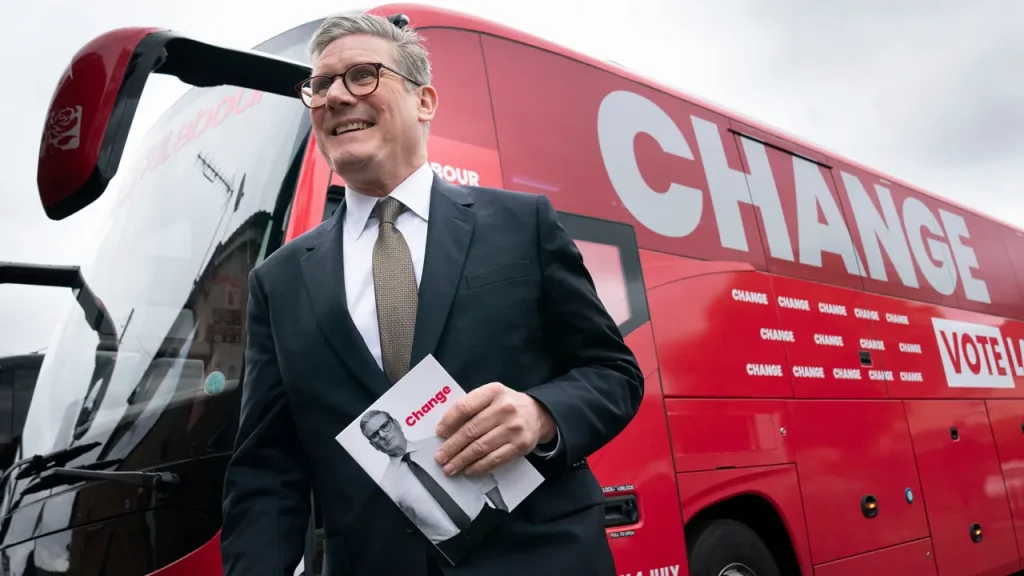The left-of-center politician Keir Starmer, aiming to become Britain’s prime minister, promises a government that is both “pro-business and pro-worker” to restore stability after years of economic and political turmoil. Starmer, the leader of the Labour Party, plans to end the “era of gestures and gimmicks” of the Conservative Party if elected on July 4. Labour currently holds a double-digit lead in opinion polls over Prime Minister Rishi Sunak’s governing Conservatives, who have been in power for 14 years under five different prime ministers. The Conservatives faced instability in 2022, with two prime ministers being ejected without an election. Starmer, a former chief prosecutor, aims to present Labour as a party of the stable center, different from its high-taxing, big-spending past under Jeremy Corbyn.
Starmer presented Labour’s election manifesto in Manchester, emphasizing it as a plan to “stop the chaos, turn the page and start to rebuild our country.” He highlighted that Labour’s platform is focused on “wealth creation” and acknowledged the need for “hard choices” about public spending. Starmer intends to get the economy expanding after years of sluggish growth and rejected the idea that the only levers are tax and spend. His platform includes establishing a new industrial policy, developing a 10-year infrastructure strategy, and building 1.5 million new homes. Although some in his party may desire bolder change, many business leaders support Starmer’s cautious economic approach.
Labour’s manifesto outlines modest spending commitments and forecasts tax increases through measures like closing loopholes related to the recent abolition of the “non-domiciled” tax status and extending a windfall tax on energy companies. Starmer assured that personal taxes would not rise under a Labour government. The manifesto also pledges to improve ties with the European Union but rules out a return to the frictionless single market and customs union. The Conservative Party, led by Sunak, released their manifesto pledging to cut taxes and reduce immigration if reelected, contrasting with Labour’s vision for the country. Labour’s plans are aimed at wealth creation, long-term industrial policy, and infrastructure development to kickstart economic growth.
During the manifesto launch, Starmer spoke from the headquarters of the Co-op in Manchester, introducing voters including a family living in cramped conditions and a terminally ill man campaigning for improved health services. The event had one unscripted moment involving a demonstrator calling for tougher climate change policies, who was swiftly removed from the premises. Starmer presented his platform as a serious plan for governance, rejecting last-minute treats to woo voters. He emphasized that he is running as a candidate for prime minister, not to run a circus, clearly distinguishing his approach from what he sees as the showmanship of his political opponents.
With only three weeks until the election, Starmer’s Labour Party is leading in the polls. The party aims to bring stability and economic growth to the UK, promising a government that is both supportive of business and workers. Starmer’s cautious economic approach has won the support of many business leaders, though some party members may desire bolder change. Labour’s manifesto focuses on long-term goals such as wealth creation, infrastructure development, and new housing, aiming to kickstart economic growth. In contrast, the Conservative Party’s manifesto pledges to cut taxes and reduce immigration, presenting voters with a choice between two different visions for the future of the country.













